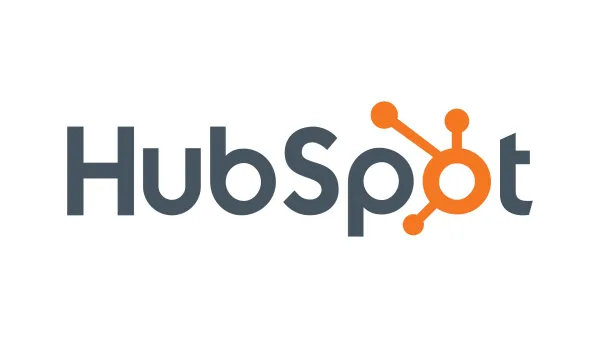If you're comparing HubSpot and Mailchimp, you're likely looking for the best platform to manage your marketing, grow your audience, and drive measurable ROI. Both are powerful tools, but they are built for very different types of users and use cases.
Mailchimp is widely known for its easy-to-use email marketing features and beginner-friendly interface. HubSpot, on the other hand, is a full-scale CRM platform that includes marketing automation, sales enablement, customer service tools, operations management, and content management—all under one roof.
In this post, we’ll break down exactly why businesses serious about long-term growth, customer lifecycle management, and advanced automation should choose HubSpot over Mailchimp.
1. HubSpot Is a Complete CRM Platform
While Mailchimp added a lightweight CRM feature in recent years, it remains primarily an email marketing tool. HubSpot was built from the ground up as a full-funnel CRM platform that serves your entire customer journey—from lead capture to closed deal to delighted client.
HubSpot’s CRM integrates seamlessly with its Marketing Hub, Sales Hub, Service Hub, CMS Hub, and Operations Hub. This unified structure enables powerful automation, real-time reporting, and cross-functional visibility.
If your goal is to build long-term customer relationships rather than just send email blasts, HubSpot gives you the infrastructure to do it right.
2. Advanced Automation and Workflows
HubSpot provides robust marketing automation features that go far beyond what Mailchimp offers. With HubSpot, you can:
- Trigger emails, tasks, or contact updates based on lead behavior
- Enroll contacts in branching workflows based on custom logic
- Create internal alerts and reminders for your sales team
- Automate lead scoring and lifecycle stage movement
- Sync with other tools like Salesforce, Slack, or Google Sheets
Mailchimp has introduced basic automation (e.g., welcome series, abandoned cart emails), but it lacks the flexibility, granularity, and depth that HubSpot’s automation engine delivers.
3. Sales and Marketing Alignment
HubSpot helps align your marketing and sales teams with shared data, goals, and tools. Marketing teams can see which campaigns led to closed deals. Sales teams can access detailed contact histories, email interactions, form submissions, and behavior across touchpoints.
With shared dashboards, lead scoring, task queues, and pipeline tracking, HubSpot enables better handoffs, faster deal cycles, and more efficient collaboration between departments.
Mailchimp does not offer native sales pipelines or deal tracking features, limiting its utility for revenue-focused teams.
4. Built-In Lead Scoring and Custom Properties
HubSpot includes lead scoring and custom contact properties out of the box, allowing you to assign scores based on actions like email opens, page visits, downloads, or custom behaviors.
Mailchimp only supports basic tagging and segmentation, which limits your ability to personalize outreach or prioritize high-value leads. For businesses looking to qualify and convert leads systematically, this difference is critical.
5. Customizable Reporting and Attribution
One of the biggest advantages of HubSpot is its reporting flexibility. You can build dashboards that include:
- Revenue attribution
- Lifecycle stage conversion rates
- Campaign ROI
- Deal velocity
- Lead source breakdowns
- Sales rep performance
These insights give marketing teams the ability to prove value and make data-driven decisions. Mailchimp provides basic email analytics (opens, clicks, unsubscribes), but it falls short when it comes to revenue attribution, multi-touch tracking, and customer journey analysis.
6. Robust Contact and Company Management
HubSpot’s CRM includes contact timelines, deal associations, email tracking, and integrations with company data providers like Clearbit and ZoomInfo. You can manage relationships at the individual and company level, set tasks, log calls, and store internal notes—all in one place.
Mailchimp treats each contact as an isolated entry, lacking the business intelligence and contact relationship mapping that HubSpot provides. This limits your ability to execute true account-based marketing or enterprise-level sales outreach.
7. Landing Pages, Forms, and CMS
HubSpot offers a full suite of tools for lead generation including:
- Drag-and-drop landing page builder
- Smart forms and progressive profiling
- A/B testing tools
- CMS for hosting your website or blog
Mailchimp recently introduced landing pages and websites, but they are still limited in functionality and customization. If content and conversion optimization are core to your growth strategy, HubSpot offers the advanced features you’ll need.
8. Better Support, Training, and Partner Network
HubSpot’s customer support, Academy training resources, and global partner network are second to none. Whether you're DIY-ing your setup or working with a HubSpot Solutions Partner like Proven ROI, you’ll always have access to help, strategy, and best practices.
Mailchimp offers support, but not at the same level of depth or strategic consulting that HubSpot users receive—especially at the Enterprise level.
9. Scalable for Growth
Mailchimp works well for startups, bloggers, and small e-commerce businesses that only need email marketing. But as you grow and require deeper segmentation, more integrations, better automation, and CRM-driven workflows, you’ll quickly hit limitations.
HubSpot is designed to scale with your business. You can start with a free CRM and expand into Marketing Pro, Sales Pro, or Operations Hub as your needs evolve. This flexibility means you can grow without switching platforms.
10. Proven ROI and Business Impact
Ultimately, the decision between HubSpot and Mailchimp should come down to ROI. HubSpot’s unified platform leads to:
- Faster lead-to-close timelines
- Higher marketing attribution accuracy
- Improved customer retention
- More efficient internal workflows
- Better visibility across departments
When used correctly, HubSpot helps you turn marketing into revenue. Mailchimp can’t match that level of impact.
Final Thoughts
Mailchimp is a great tool for basic email marketing and list management, but for businesses looking to scale, streamline, and sell smarter, HubSpot is the superior choice. From advanced automation and sales enablement to real-time reporting and a full-featured CRM, HubSpot gives you the power to manage the entire customer journey in one place.
Ready to make the move to HubSpot? Proven ROI is a certified HubSpot Solutions Partner. Contact us for a free consultation and see how we can migrate your data, optimize your setup, and turn your CRM into a revenue-driving machine.

















